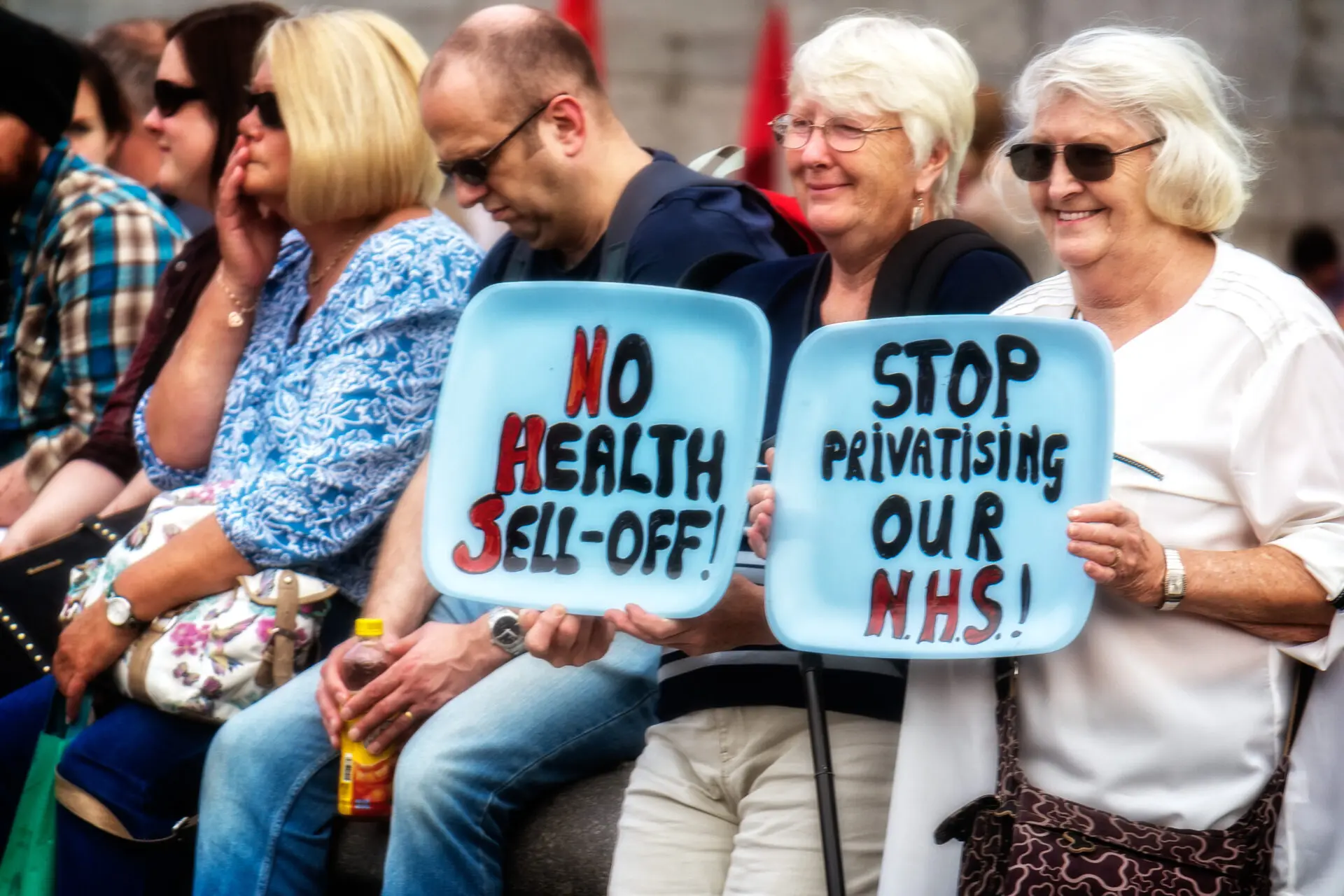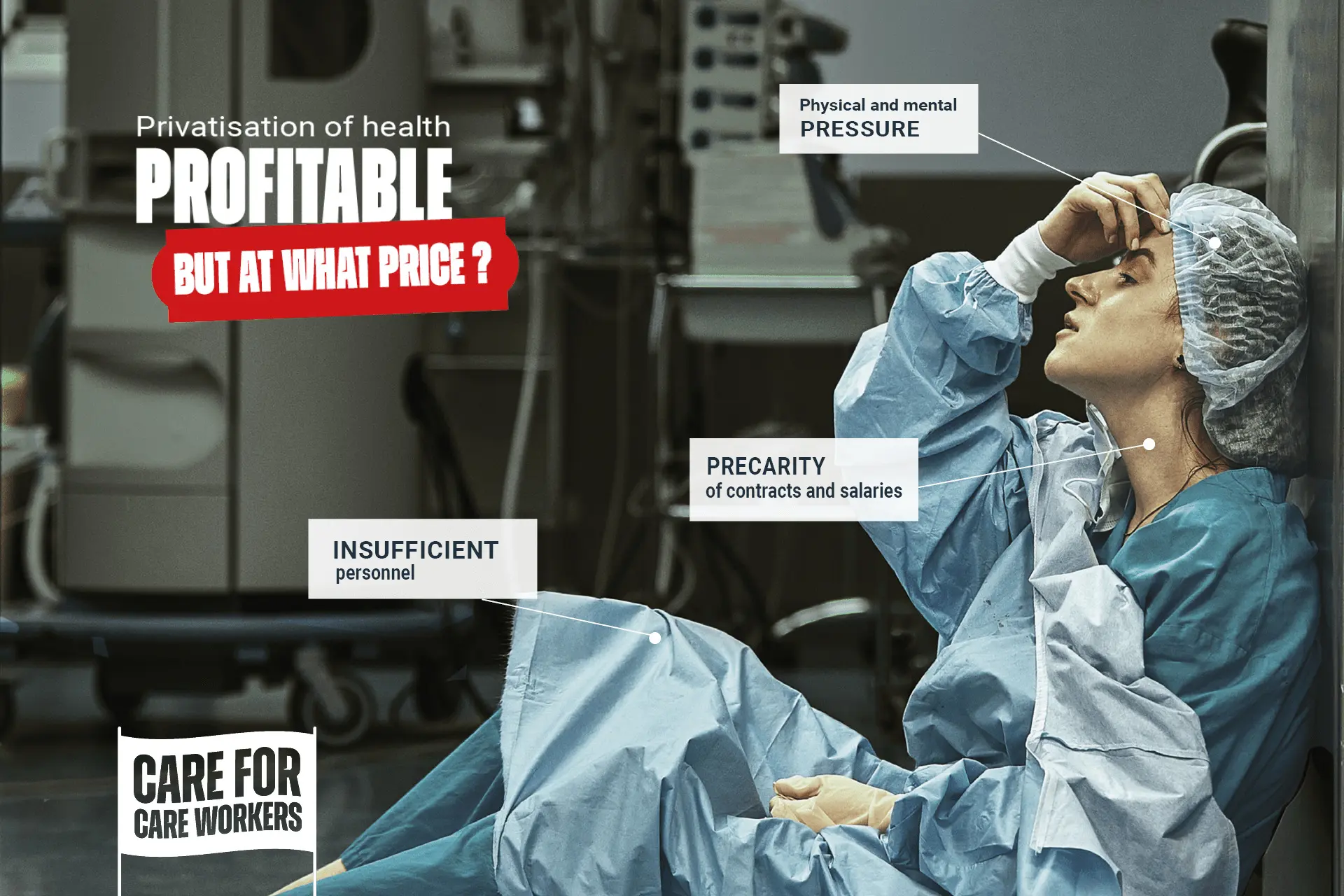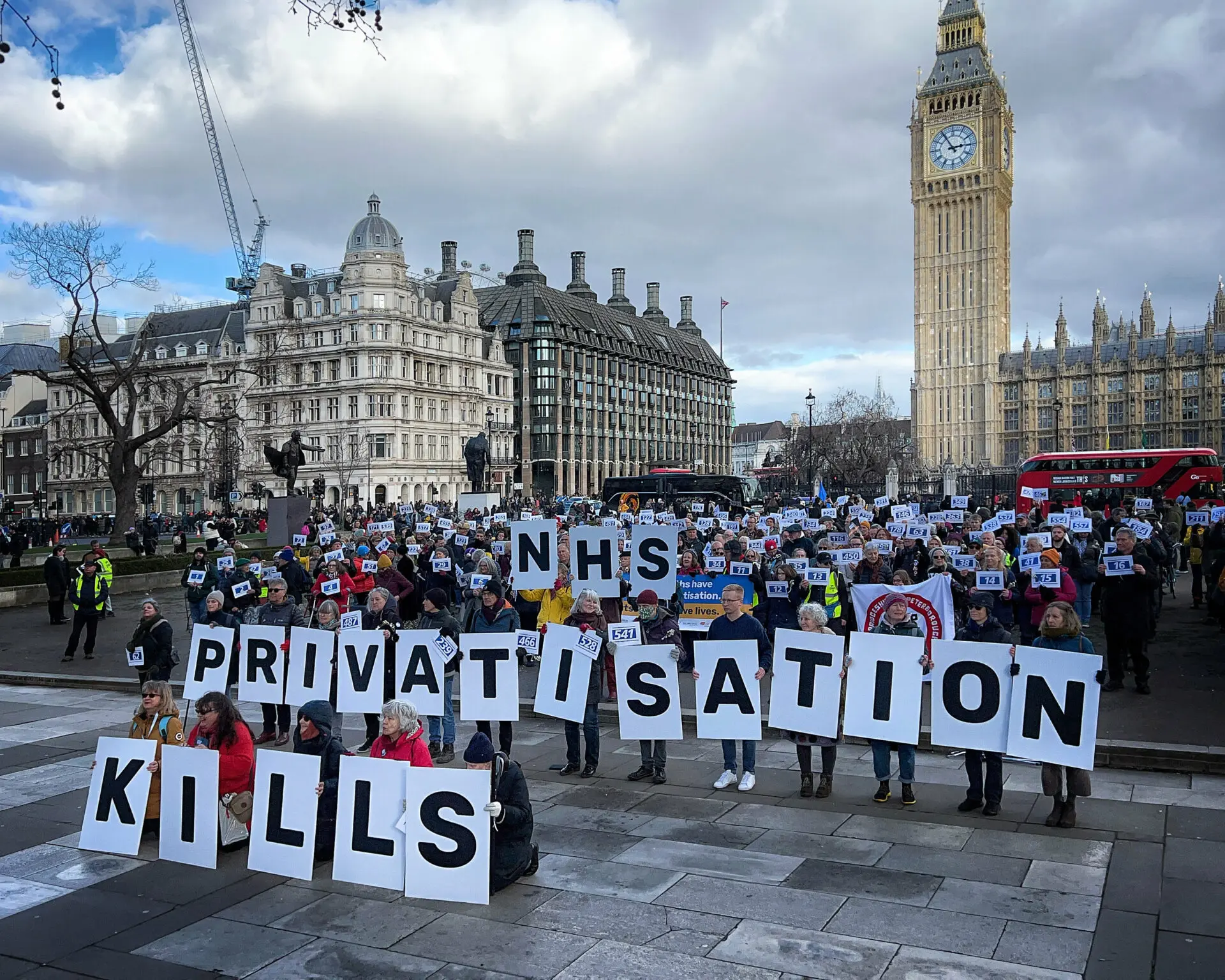Interview Allyson Pollock: ‘As soon as you privatise, health services fall apart’
Allyson Pollock is a British health activist, researcher and doctor. At the most recent edition of the 2023 ManiFiesta solidarity festival, we had the chance to interview her. Exactly how Allyson became an activist? She doesn’t remember. “As a public health doctor, you are faced with so much inequality that you have no other choice.”
Viva Salud: Hey Allyson. At the end of 2022 and during the first few months of 2023, the UK saw a historic wave of strikes and protests by health workers. Why did they actually take to the streets? And did they get what they wanted?

There is no victory to celebrate as a result of these strikes. Health workers are on strike because their salaries did not increase with inflation and have therefore been reduced in reality over time. In addition, working conditions are very poor and deteriorating. Less qualified staff are being recruited at lower cost to replace experienced more highly qualified healthcare workers and since staffing is an important measure of outcome this impacts on quality of care for patients. Care workers may get a pay rise, but they will not prevail in the long run as many staff are being shifted to the private sector with reduced terms and conditions. Tis is a result of our NHS being gradually dismantled and privatised. The government is not worried about the outcome of the junior doctors’ strike and is ready to stand firm.
| Wat is de NHS*? NHS stands for National Health Service. It refers to government-funded medical services that anyone living in the UK can use without having to pay the full cost. Most of their services are publicly funded through taxes. |
Healthcare privatisation is a global problem. To what extent has the NHS fallen into commercial hands?
That is difficult to quantify because the government does not publish data on privatization. We do know that tens of billions of pounds of contracts are going to the private sector to provide health services that the NHS once provided directly. Today more than half of all knee, hip and cataract operations are performed under NHS contracts in the private sector . This is very similar to the US system, where the government is the payer but does not provide the services.
The English government has now become a payer as an increasing share of NHS services are is being contracted out to for profit companies. At the same time the amount of in house provision and capacity within the NHS itself is shrinking and becoming smaller and smaller.


How does privatisation and commercialisation of healthcare affect health workers?
Once one starts privatising, you fragment different health services and they fall apart and shrink. Markets require services to be broken up. There are also the additional costs of operating a market. More and more money leaves the system and goes to shareholders, investors and market costs such as billing. That means much less money goes to staff. In a publicly integrated system the NHS had few market costs and 80 or 90% of the budget was for staff. In the US that figure is closer to 50 % and that is what is happening in the NHS.
“As soon as one starts privatising, you fragment different health services and they fall apart. One also takes more and more money out of the system, for shareholders, investors and market costs That means much less money goes to staff.”
Allyson Pollock, British health activist, researcher and doctor
Many EU countries are facing a shortage of health workers. They are now trying to recruit people from all over the world to fill the gaps. What’s your take on that?
It’s wrong. It’s a new form of colonization. Has Belgium learned nothing from what it did in Congo? Whereas once the colonisers extracted minerals, it is now extracting educated people. The middle- and low-income countries from which people are recruited spend a lot of money training staff, and then they lose them. Almost all European countries do the same, instead of putting in the sound investments to build our services and train our doctors and nurses they prefer other countries invest in schooling education and then they swoop in.
The west is parasitic on low and middle income countries. The private market is not interested in workforce planning and in educating and training young people or in meeting the needs of healthcare workers and patients.
How do we solve the global crisis of health worker shortages?
One has to start locally.. One has to start building the capacity of one’s own staff and invest in education and that education like public health care should be universal and free at point of delivery. There should be no student debts and students then would feel privileged to work in the public system which paid for their education.
One must also invest in the system, and not just financially. In Belgium, as in many other places, we see overtreatment and overdiagnosis while on the other hand there are people who have no access to medicine or treatment. That is what the market does- it sells unnecessary tests and treatments and creates demand for products. Leaders insist that privatisation will solve everything. It will be a long process to convince them and the public that it won’t.
“Leaders insist that privatisation will solve everything. It will be a long process to convince them and the people that it won’t.”
Allyson Pollock, British health activist, researcher and doctor
It is sometimes hard to remain optimistic. Where do you draw hope from?
From you. Your generation, the young generation. My generation was the generation that had everything. We had free education, we had free healthcare, we had it all and we got greedy and pulled the ladder up after us. Our hope is your generation, the one that suffers the most. We didn’t have the same job insecurity, housing insecurity, debts from education and high inflation that you are experiencing. So what I draw hope from is your generation taking to the streets and mobilising and voicing your concerns.
Across the world governments of all political colours now believe in markets and insist that privatisation will solve everything. The evidence is clear that they do not. Rebuilding what we have lost and redistributing wealth to public services will take political will. It can and must be done for a fairer and more just society

- For more info, join our Care for Care workers campaign


